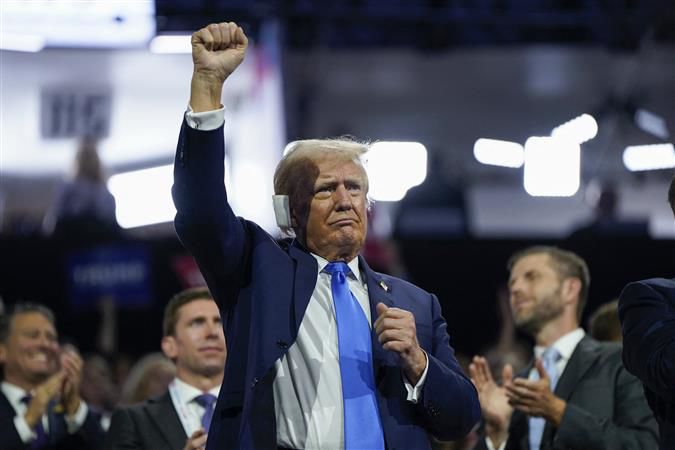Trump says Taiwan should pay for defence, sending TSMC stock down
Taipei, July 17
Taiwan should pay the United States for its defence as it does not give the country anything, US Republican presidential candidate Donald Trump said, sending shares of Taiwanese chip manufacturer TSMC down on Wednesday.
“I know the people very well, respect them greatly. They did take about 100% of our chip business. I think, Taiwan should pay us for defence,” Trump said in interview with Bloomberg Businessweek on June 25 but published on Tuesday.
“You know, we’re no different than an insurance company.
Taiwan doesn’t give us anything.”
The US is Taiwan’s most important international supporter and arms supplier, but there is no formal defence agreement. The US is however bound by law to provide Taiwan with the means to defend itself.
US President Joe Biden has upset the Chinese government with comments that appeared to suggest the US would defend Taiwan if it were attacked, a deviation from a long-held US position of “strategic ambiguity”.
Washington and Taipei have had no official diplomatic or military relationship since 1979, when the US switched recognition to Beijing.
There was no immediate reaction from Taiwan’s government, nor TSMC which is currently in its quiet period ahead of its second quarter earnings report on Thursday.
Shares in Taiwan Semiconductor Manufacturing Co Ltd (TSMC), the world’s largest contract chipmaker and a major Apple and Nvidia supplier, fell more than 2% on Wednesday morning. The broader market was down around 0.4%.
TSMC is spending billions building new factories overseas, including $65 billion on three plants in the US state of Arizona, though it says most manufacturing will remain in Taiwan. Reuters









